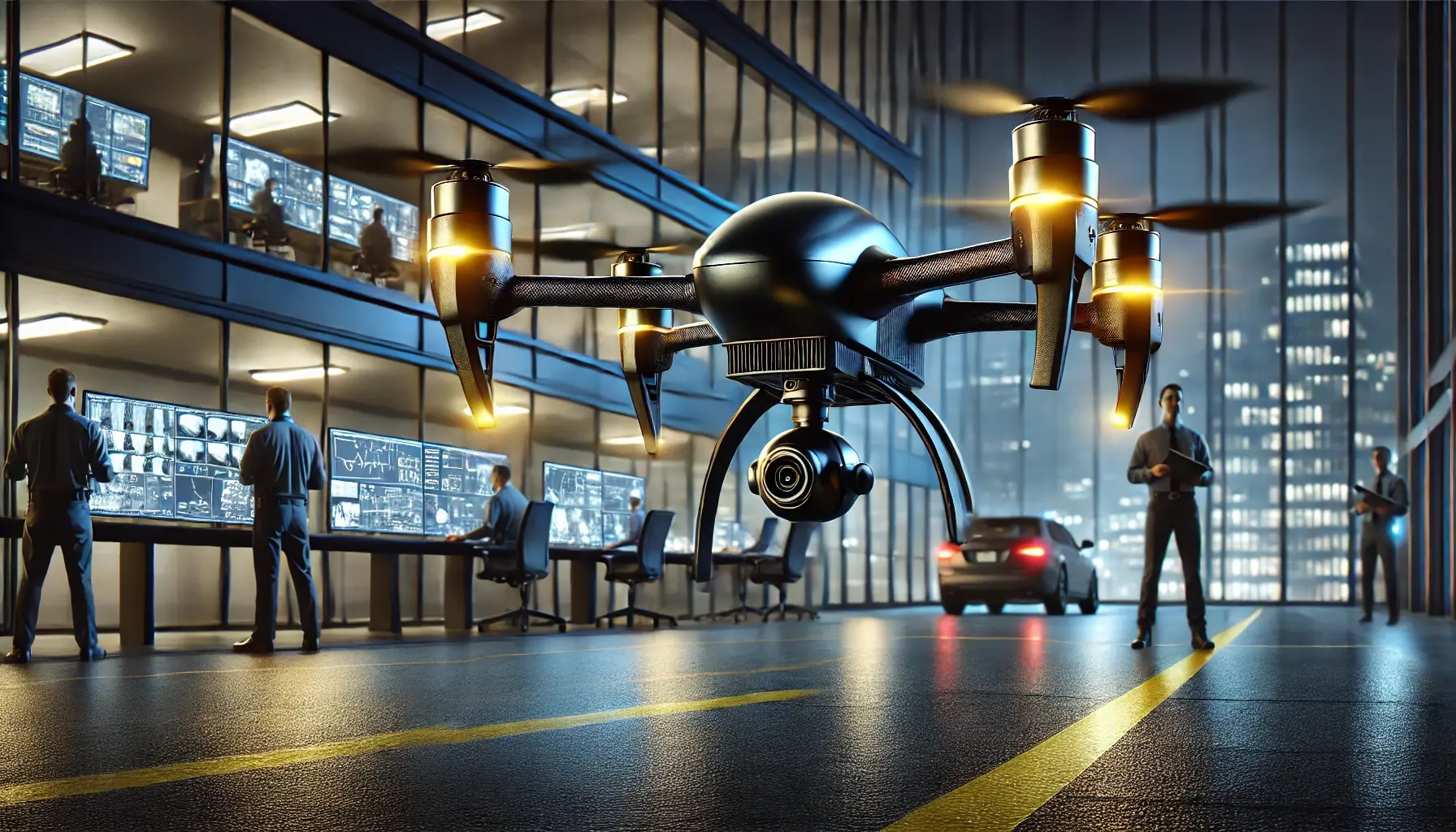Cost-Effective Security: Comparing Drone Security to Traditional Methods
In today’s fast-paced corporate environment, security is a top priority for protecting assets, employees, and operations. Traditional methods such as on-site guards and CCTV have long been the standard, but they come with limitations. Enter drone technology—a game-changer that offers a cost-effective and highly efficient alternative. This article explores the cost and effectiveness of drone security versus traditional security measures and how drones are reshaping corporate campus protection. Need help planning out your corporate campus's aerial drone security?
1. Cost of Deployment and Maintenance
Traditional Security: Hiring on-site security guards and installing CCTV systems can be expensive. Guards require salaries, benefits, and ongoing training, while CCTV systems demand significant upfront investments and regular maintenance. Additionally, cameras are stationary, which means additional equipment is often needed to cover blind spots.
Drone Security: While drones require an initial investment, they prove to be cost-efficient over time. Once deployed, a single drone can cover a vast area, reducing the need for multiple static cameras or additional guards. Maintenance costs are relatively low compared to the recurring expenses of human resources and the infrastructure needed for traditional systems.
Cost Comparison Table:
| Expense Category | Traditional Security (Annual) | Drone Security (Annual) |
|---|---|---|
| Personnel Salaries | High | None |
| Equipment Installation | Moderate to High | Moderate |
| Maintenance Costs | Moderate | Low |
| Training Expenses | Ongoing | Minimal |
| Overall Cost | High | Lower |
2. Effectiveness in Surveillance
Traditional Security: CCTV cameras are limited by their fixed positions, creating potential blind spots that can compromise surveillance. On-site guards provide mobility, but their effectiveness is limited by physical constraints, such as the time it takes to cover large areas.
Drone Security: Drones excel in mobility and flexibility. They can navigate large campuses quickly, covering areas that guards or cameras might miss. Equipped with advanced features like AI-powered analytics, thermal imaging, and live streaming, drones can identify and respond to potential threats in real-time.
Key Features of Drone Security:
-
Dynamic movement to eliminate blind spots.
-
Real-time threat detection and reporting.
-
High-definition cameras for detailed surveillance.
3. Scalability and Coverage
Traditional Security: Scaling traditional security involves hiring more guards or installing additional cameras—both of which significantly increase costs. Coverage is also limited by physical infrastructure, such as the placement of cameras and guard stations.
Drone Security: Drones offer unparalleled scalability. Adding more drones to a fleet is straightforward and doesn’t require significant changes to the existing infrastructure. A single drone can patrol areas that would otherwise require multiple cameras or guards, making it a cost-effective solution for expanding security coverage.
Advantages of Drones Over Traditional Systems:
-
Ability to patrol multiple areas without additional personnel.
-
Easy integration into existing security setups.
-
Flexible deployment for special events or high-risk periods.
4. Response Times
Traditional Security: Guards on foot or in vehicles may take several minutes to respond to an alarm or suspicious activity. Fixed CCTV cameras can only record incidents, leaving it up to security teams to interpret footage and react accordingly.
Drone Security: Drones can respond almost instantly. Upon detecting a threat, they can be deployed to the exact location in seconds, providing real-time visuals to security teams. This rapid response capability can help prevent incidents from escalating and minimize damage.
Examples of Drone Response:
-
Quickly locating intruders on large campuses.
-
Tracking suspicious vehicles in real-time.
-
Assessing emergency situations before ground teams arrive.
5. Operational Efficiency
Traditional Security: While guards and cameras are effective, they require significant human effort to operate and monitor. Guards can experience fatigue, and static cameras need constant supervision to detect anomalies.
Drone Security: Drones are equipped with advanced technologies such as AI and automation, reducing the need for constant human involvement. They can operate autonomously, patrolling pre-set routes or responding to triggers from integrated security systems.
Drone Technology Highlights:
-
AI for anomaly detection and behavior analysis.
-
Automated patrol routes.
-
Integration with access control and alarm systems.
Why Choose Drones for Corporate Campus Protection?
-
Cost Savings: Drones reduce the need for extensive personnel and infrastructure, offering a more affordable security solution.
-
Enhanced Surveillance: With their mobility and advanced features, drones provide comprehensive coverage that traditional systems cannot match.
-
Scalable Solutions: Whether for a small office or a sprawling campus, drones can easily adapt to different security needs.
-
Faster Response Times: Immediate deployment ensures quicker resolution of potential threats.
-
Eco-Friendly: Drones run on electric power, making them a sustainable option compared to fuel-powered patrol vehicles.
Frequently Asked Questions (FAQs)
Q: Are drones suitable for all types of corporate campuses? A: Yes, drones can be customized to meet the unique security needs of any campus, from small office complexes to large industrial facilities.
Q: What is the range of a typical security drone? A: Most security drones have a range of 3-5 miles, depending on the model and terrain.
Q: How do drones integrate with existing security systems? A: Drones can be connected to access control, alarms, and surveillance software, providing a seamless security solution.
Q: Are drones cost-effective in the long term? A: Absolutely. While the initial investment may be higher, drones save money on personnel, maintenance, and infrastructure over time.
Q: Do drones comply with privacy regulations? A: Yes, when operated responsibly and within the boundaries of local laws, drones can be used without infringing on privacy rights.
.png)
.png)
.png)

.png)
.png)

.png)
.png)
.png)
.png)
